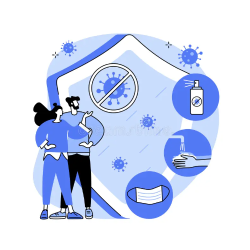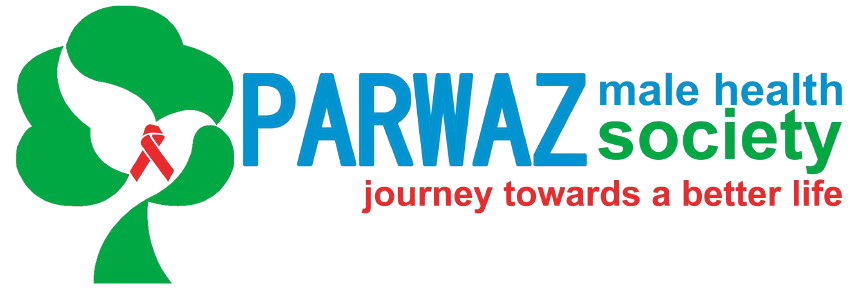
Personal Hygiene
Effective protection from illness comes from good personal hygiene practices like handwashing and avoiding coughing or sneezing on others. It is important to clean touched surfaces when unwell, dispose of tissues properly, and use protection when at risk of infection. Personal hygiene, including bathing, varies across cultures with some expecting daily washing and deodorant use for body odor control.
Body odor is caused by sweat chemicals like pheromones, skin wastes like alcohol, bacteria on the skin, and unwashed clothes. Infections like colds and gastroenteritis spread through unwashed hands touching the mouth or contaminated food. Washing hands with soap and water, using a brush for dirty fingernails, and drying with clean materials is essential. Hands should be washed after using the toilet, before eating, handling animals, or being around sick individuals.
To prevent smegma buildup, uncircumcised men should gently clean under their foreskin with water during showers, and optionally use soap, ensuring thorough rinsing.
Regular brushing and flossing are essential for good dental hygiene. Bad breath can result from dental and gum diseases, as well as certain foods like garlic. Mouth washes and gum can provide temporary relief, but underlying health issues should be addressed by a dentist.
Use bottled water for drinking. Avoid using tap water for teeth cleaning. Ensure hands are dry before touching food. Don’t wash produce with unsafe water. Boil water for one minute if no other source available. Dry dishes thoroughly.
Sweat controls body temperature by evaporating from the skin. Heat stroke can result from insufficient sweating on hot days. Hyperhidrosis is excessive sweating without a known cause. Reduced sweating is called hypohidrosis if there’s partial loss or anhidrosis if there’s a complete lack of sweating. Sweat is produced by glands in the skin’s dermis, containing water and salts to cool the body and aid gripping. Hot weather, exercise, stress, spicy foods, fever trigger normal sweating.
Hyperhidrosis is abnormal increased sweating, with idiopathic hyperhidrosis being the most common type. It has no known cause and can affect any part of the body, most commonly the palms, soles, or armpits. Causes may include obesity, menopausal hormonal changes, illness, an overactive thyroid, diabetes, or certain medications. Diagnosis usually does not require testing, but thyroid disease may be checked occasionally. Treatment options include weight reduction, medical management, antiperspirants, iontophoresis, Botox injections, or surgery for severe cases. Self-help strategies include wearing loose clothing and using specific antiperspirants.
Conversely, hypohidrosis is reduced sweating, which can be partial or complete, caused by various factors like skin disorders, burns, or hypothyroidism. Heat stroke, a serious complication of lack of sweat, can be life-threatening if not managed properly. Symptoms include muscle cramps, headache, nausea, and vomiting. Heat stroke can be prevented by staying cool, hydrated, and seeking medical help as needed.
Proper handwashing is essential in preventing the spread of gastroenteritis, influenza, and hepatitis A. Wash your hands with soap and warm water for at least 10 seconds, especially before handling food, after using the toilet, and after handling animals. Some strains of gastroenteritis can cause severe complications, particularly in vulnerable populations. It is crucial to dry your hands thoroughly after washing to prevent the spread of germs. Remember to wash your hands before preparing or eating food, after handling raw meats, changing diapers, or caring for sick family members. To wash your hands properly, lather with liquid soap for 15–20 seconds, ensuring all surfaces are covered, including wrists, between fingers, and under nails. Rinse well and dry completely, using paper towels or a single-use cloth.
Cold water is suitable for a quick hand wash, but warm water is better for regular handwashing as it helps soap lather effectively and release active ingredients. Using hot or cold water can damage the skin’s natural oils, leading to dermatitis over time. Soap is crucial for loosening dirt, softening water, and rinsing hands without leaving irritating residues. Liquid soap is preferable to bar soap for hygiene, accurately dispensing the right amount, reducing waste, and saving time. Disposable liquid soap cassettes are convenient, while refillable containers should be thoroughly cleaned before refilling to prevent contamination. Bar soap can harbor harmful germs if left in water, dry out, and become less effective. It is recommended to use a soap rack for bar soap at home and replace it when it gets old or cracked to maintain hygiene.
Handwashing is a key part of hand hygiene, with skin being a crucial barrier against infection. Apply hand cream regularly, use gloves for washing dishes and gardening, and seek medical advice for skin irritation. Proper hand washing prevents diseases; use liquid soap, wash thoroughly.
